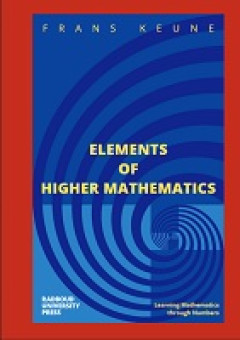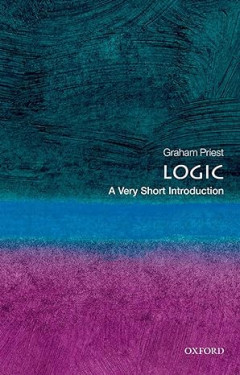Ditapis dengan

E-book Elements of Higher Mathematics: Learning Mathematics through Numbers
This is a textbook for beginning mathematics students. Knowledge of school mathematics is not presumed: it starts with the basics of counting. The underlying idea is that the best way to learn mathematics is by doing mathematics. For beginning students it is sometimes a problem to assume when looking for proof. For the exercises in this textbook, this situation does not occur: except for the in…
- Edisi
- -
- ISBN/ISSN
- 9789493296824
- Deskripsi Fisik
- 502 halaman, ilus.
- Judul Seri
- -
- No. Panggil
- 511.3 KEU e
E-book Advances in Proof-Theoretic Semantics
Both Heyting and Gentzen approached questions of meaning in relation to whatit is to prove something, but as seen from the above, their approaches were stillvery different. Gentzen was concerned with what justifies inferences and therebywith what makes something a valid form of reasoning. These concerns were absentfrom Heyting’s explanations of mathematical propositions and assertions. The co…
- Edisi
- -
- ISBN/ISSN
- 9783319226866
- Deskripsi Fisik
- 281 hlm
- Judul Seri
- -
- No. Panggil
- 511.3 PE a

E-book Logic: A Very Short Introduction
Logic is often perceived as having little to do with the rest of philosophy, and even less to do with real life. In this lively and accessible introduction, Graham Priest shows how wrong this conception is. He explores the philosophical roots of the subject, explaining how modern formal logic deals with issues ranging from the existence of God and the reality of time to paradoxes of probability…
- Edisi
- -
- ISBN/ISSN
- 9780195682625
- Deskripsi Fisik
- 146 halaman.
- Judul Seri
- -
- No. Panggil
- 160.0 PRI l
E-book Inquisitive Logic : Consequence and Inference in the Realm of Questions
In logic, we study properties of sentences, such as truth, falsity, necessity, and contin-gency, relations between sentences, such as entailment and consistency, and practicesinvolving sentences, such as argumentation. However, bysentences, we normallyonly mean sentences of a certain particular kind: declarative sentences—statements,and their counterparts in formal languages.There are princip…
- Edisi
- -
- ISBN/ISSN
- 9783031097065
- Deskripsi Fisik
- 284 hlm
- Judul Seri
- -
- No. Panggil
- 160 CIA i
 Karya Umum
Karya Umum  Filsafat
Filsafat  Agama
Agama  Ilmu-ilmu Sosial
Ilmu-ilmu Sosial  Bahasa
Bahasa  Ilmu-ilmu Murni
Ilmu-ilmu Murni  Ilmu-ilmu Terapan
Ilmu-ilmu Terapan  Kesenian, Hiburan, dan Olahraga
Kesenian, Hiburan, dan Olahraga  Kesusastraan
Kesusastraan  Geografi dan Sejarah
Geografi dan Sejarah